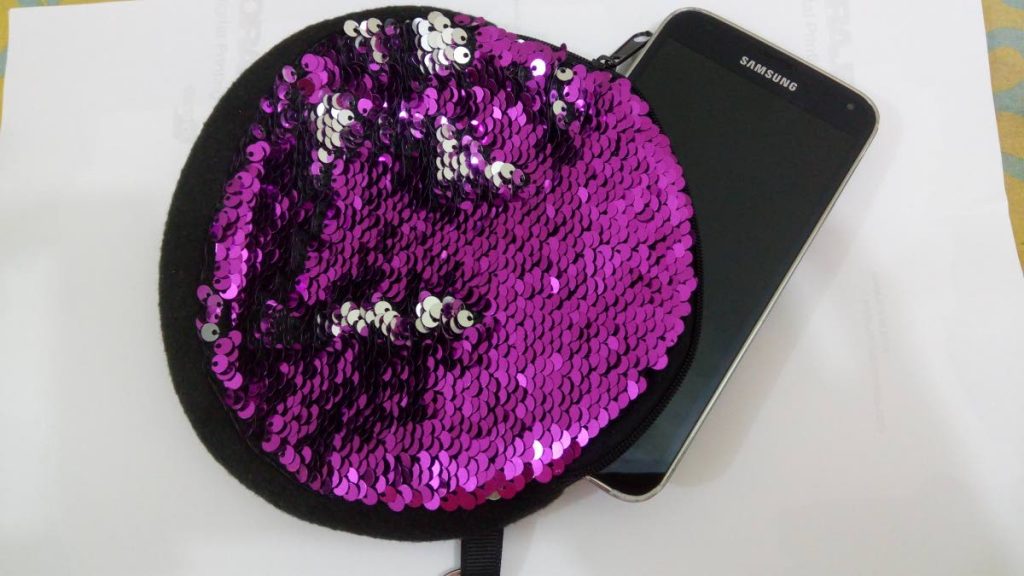What constitutes a boy or a girl?

“Mom, do I look transgender?”
Hmmm. Mama needs to take a walk to the fridge, open the door and take a long look inside at nothing in particular before answering that question. That question that I wasn’t expecting and wasn’t sure how to answer just yet. That question, the answer to which will more than likely have a lasting impact on the way he views himself from a sexual perspective. That question that I really want to defer to later, much later.
But I decided to give it a go.
“No, you don’t. But being transgender is not just a look. Do you even know what transgender means?”
His response, “That I was born a boy but now feel like a girl.”
At least he understands what he is asking about.
“And do you feel like you’re a girl now?”
His turn. “No. But I like to play with the girls in my class and my male friends say…and they say I keep my phone in this shiny case…and I was watching a video on YouTube about a transgender person who kind of looked like me when she was a boy…”
And there it was: society’s take on what should constitute a boy or a girl rearing its head, and that bacchanalist YouTube.
I thought he and I had covered and moved on from that whole pink-and-blue, frogs-and-snails and sugar-and-spice c--p that is, unfortunately, still making the rounds.
But I guess I underestimated the power of peer pressure, with YouTube being the mecca of it. The power of ideological influences so strong that it caused my ten-year-old to question his sexual orientation just because he likes playing with his girlfriends as much as his boyfriends. Because he carries his phone in a purple mermaid sequinned case that he just had to have as soon as he saw it. Because we parents really need to monitor the videos our children spend hours looking at.
From the recesses of my mind I pulled and dusted a piece of advice sex educator Onika Henry had given to me many years ago: “The sex discussion with your son will be an ongoing one. And once you develop a good rapport with him about sex, you have to be prepared to answer questions on every sexual topic at every stage of his young life.”
So we picked up the discussion from where we left off about six months ago, when we had chatted about puberty and what he and I should expect.
We talked about his sexual orientation being about who he is attracted to and with whom he will want to have intimate relationships, and that it can mean being heterosexual; gay; bisexual; or asexual. We established that his classmates calling him a “girl” because he likes playing with girls has no bearing on his sexual orientation. We discussed the difference between sexual orientation and gender identity, which is not about who he may be attracted to but who he is – a male.
“So who decides on my sexual orientation?” he questioned, and I referred him to an article on the website kidshealth.org. “Being straight, gay, or bisexual is not something that a person can choose or choose to change. In fact, people don't choose their sexual orientation any more than they choose their height or eye color. Gay people are represented in all walks of life, across all nationalities, ethnic backgrounds, and in all social and economic groups.”
We touched on the roles religious doctrines play in determining the morality of sexual orientation, but had to stick a pin in that particular topic for further discussion.
“So how do gay people have children?” was one of his pressing questions, to which I responded with explanations of sperm and egg donation, in-vitro fertilisation, intrauterine insemination, surrogacy and adoption.
To ease his immediate concern about the possibility of him being transgender, which he describes as “gross,” I reminded him of his many girl and women crushes over the years, as opposed to the zero he has had on boys; his recently developed pastime of showing great appreciation for the female anatomy, with special emphasis on breasts and butts; and we revisited the plans he is consistently putting in place to take great care of his future wife and children.
The thing is, though, if at the end of the day it turns out he is transgender, then what?
I say: que sera sera. Because while I would very much prefer it if my son remains my son, above all else I want him to be happy with his life.
Maybe a couple of decades ago I would have tried to talk or exorcise the transgender out of someone, because I admit I was not always this open-minded. But age, awareness and education have a way of changing viewpoints for some people and, for me, have paved the way for the formation of some great friendships with transgender people.
Besides, refusing to accept and support the lifestyle my son ultimately chooses just might make me the mother of all hypocrites – the mother who has consistently been assuring him that he will have my support in whatever path he decides to take in life, providing he is comfortable, healthy and happy, and whatever he is doing is not illegal.
Certainly, if it comes to that we will have lengthy discussions about a transgender lifestyle, and we will do whatever is necessary to determine if that’s truly the direction in which he wants to go.
But ultimately the decision will be his.
Maybe I should record myself reading this and post it on YouTube.


Comments
"What constitutes a boy or a girl?"